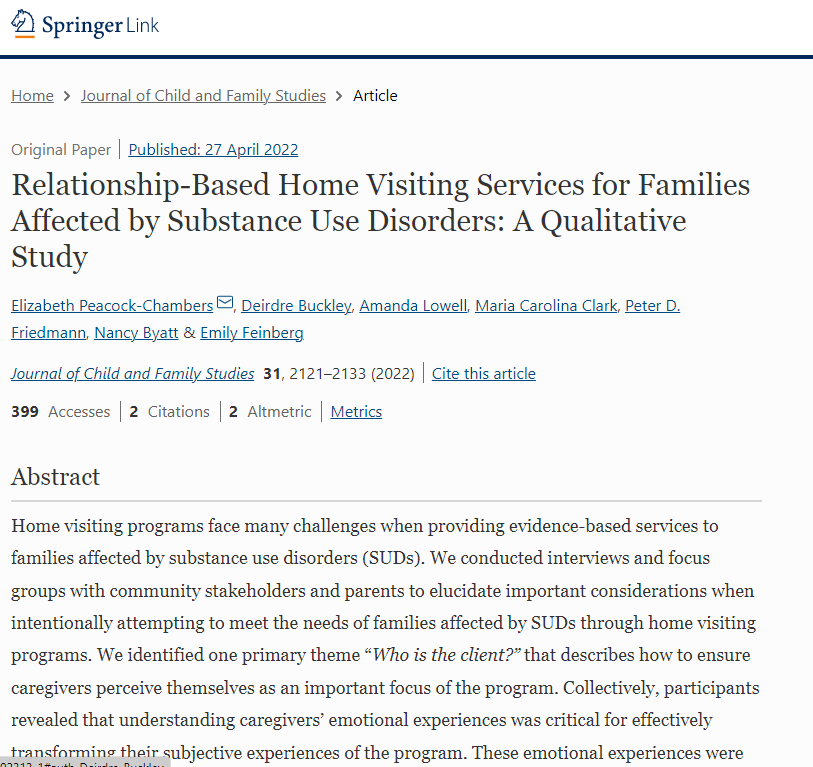Families affected by substance use disorders (SUDs) often experience barriers to home visiting program engagement, including a lack of transportation or child care, feeling judged or stigmatized by providers, and fear of custody loss. Importantly, previous research has found that among women with SUDs, their subjective experience of a home visiting program is key to program retention. The needs of families affected by SUDs were explored in rural and urban communities in western Massachusetts through semi-structured interviews and focus groups with parents with SUDs, home visiting staff and directors (providing IDEA Part C Early Intervention services), physicians, nurses, and addiction treatment professionals. A primary theme that emerged across participants was the need for services to include both the parents and child—rather than only one or the other—with a central focus on the parent-child relationship. While many providers also identified this as a central concept, they noted that it was not common practice within their program. Another crucial gap in current service provision is understanding parents’ complex emotional experiences and providing emotional support for parents that considers the dynamic experience of SUD recovery.

